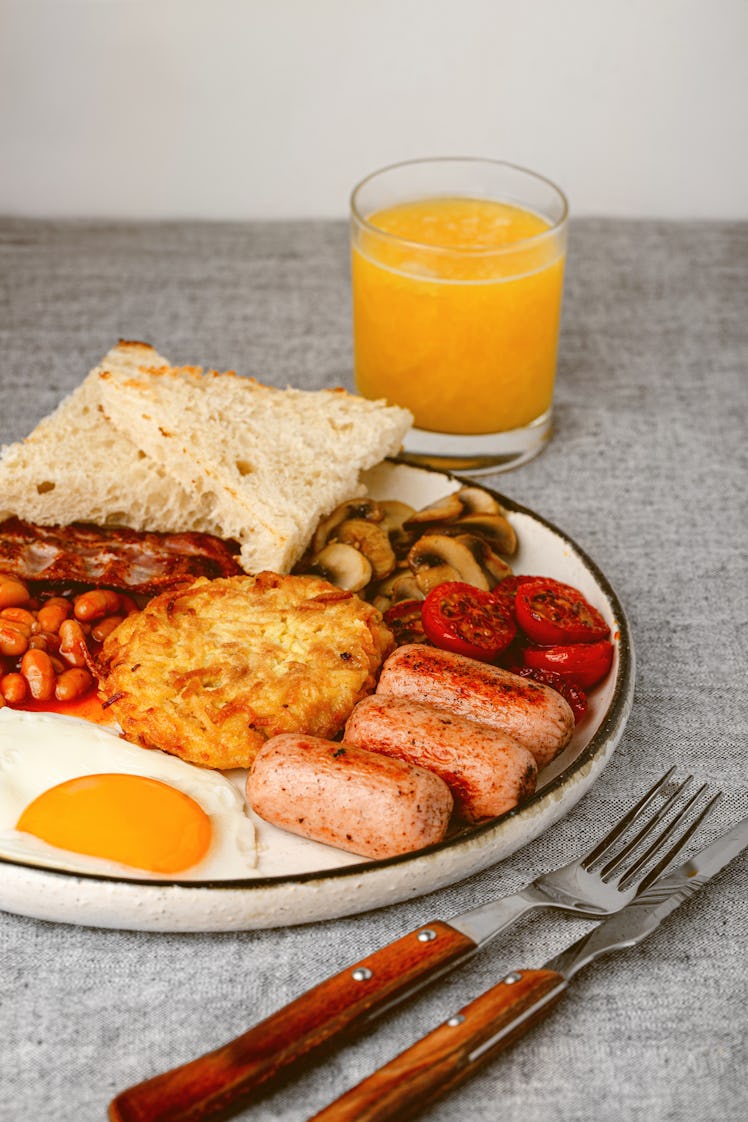Eating High Calorie Food In the Morning May Help You Lose Weight
The early bird doesn’t have to eat the worm. They could get away with cookies and cold pizza.

The best part of starting a new diet is that it’s one of the more socially acceptable things to cheat on. As much as you don’t want to set up yourself for failure when it comes to health goals, you don’t want to beat yourself up over falling short either. But it’s possible to strike a balance by minimizing the extent of setbacks by timing missteps just right. The key is not instituting cheat days, but rather cheat hours. And those should occur in the morning.
“Even though we all want to eat right and be fitter, happier, and more productive, to everything there is a time and a season,” Caleb Backe, a certified personal trainer and health and wellness expert, told Fatherly. “There is even a season for cheating on your diet, and it is called morning.”
Ample research suggests that people who eat breakfast experience lower rates of heart disease, as well as lower blood pressure and cholesterol levels. Despite data that suggests skipping lunch or dinner increases the number of calories people burn in a 24-hour period, doing the same with breakfast can have the opposite effect: impairing your metabolism’s ability to switch between burning fat and carbohydrates, as one recent study shows. Animal studies also indicate that the timing of meals may actually be more important for weight-management in the long term than calorie consumption.
Two additional human studies confirm that playing to your internal clock is the key to dieting efficacy. The first broke 420 participants into two groups — early eaters (those who ate lunch before 3 p.m.) and late eaters (those who ate lunch after). After 20 weeks, those who front-loaded their calories lost more weight than those who ate later in the day, even though they consumed comparable amounts of calories, fat, protein, and carbohydrates. The second study broke subjects into two similar groups. Both consumed 1,400 calories for 12-weeks, including 500-calorie lunches. Early eaters had 700-calorie breakfasts and 200-calorie dinners, and late eaters reversed this, but the nutrient content was the same. After 12 weeks, the big breakfast group lost 2.5 times more weight than the big dinner group.
“Our circadian rhythm favors eating during the day particularly breakfast through better blood sugar control and an improved metabolism,” Nick Mackowski, a personal trainer and kinesiologist (who was not involved directly in the research), explained to Fatherly.
In the end, it seems that timing is the key to both successful dieting and cheating. As long as you’re not scarfing down cheddar bunnies in your sleep, waking up everyday signals the end of an eight-hour fast. Even though that can average out to more of a six-hour fast for parents, your body is primed to convert calories into productivity and less likely to store them as fat.
On top of that, both Backe and Mackowski agree that when you splurge in the morning, you’ll actually consume fewer calories than if you indulged later in the day because you’re fueling your body after a natural period of fasting — as opposed to satiating it after a long, active day of deprivation.
“No matter what you eat, everyone agrees you should have a big breakfast, and that it is the most important meal of the day. And there is a reason for that,” Backe says. You don’t have to start your day off with grapefruit or green juice to lose weight and keep it off. You just have to find a pizza place that delivers before 9 a.m. and run out the clock.
This article was originally published on